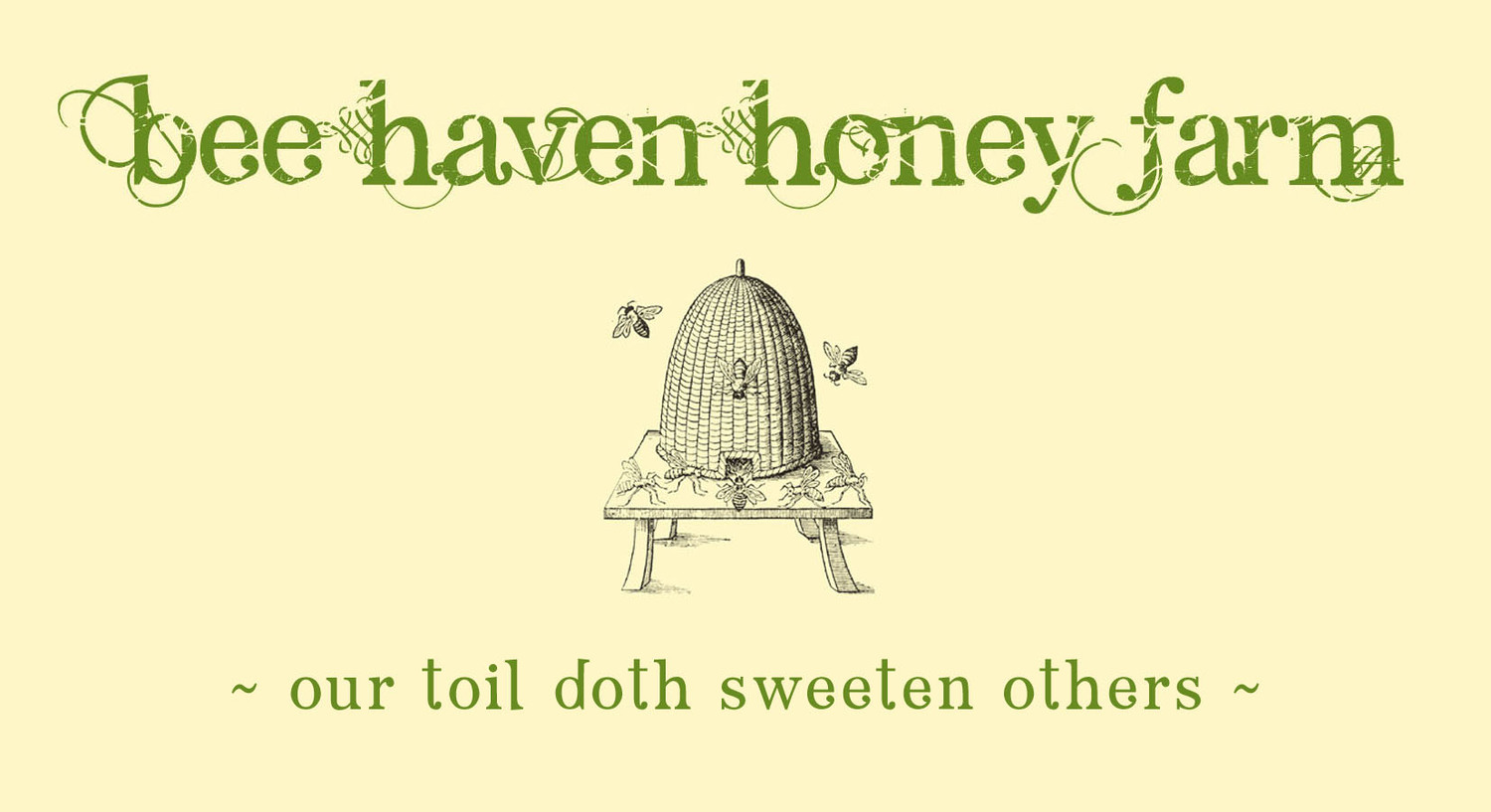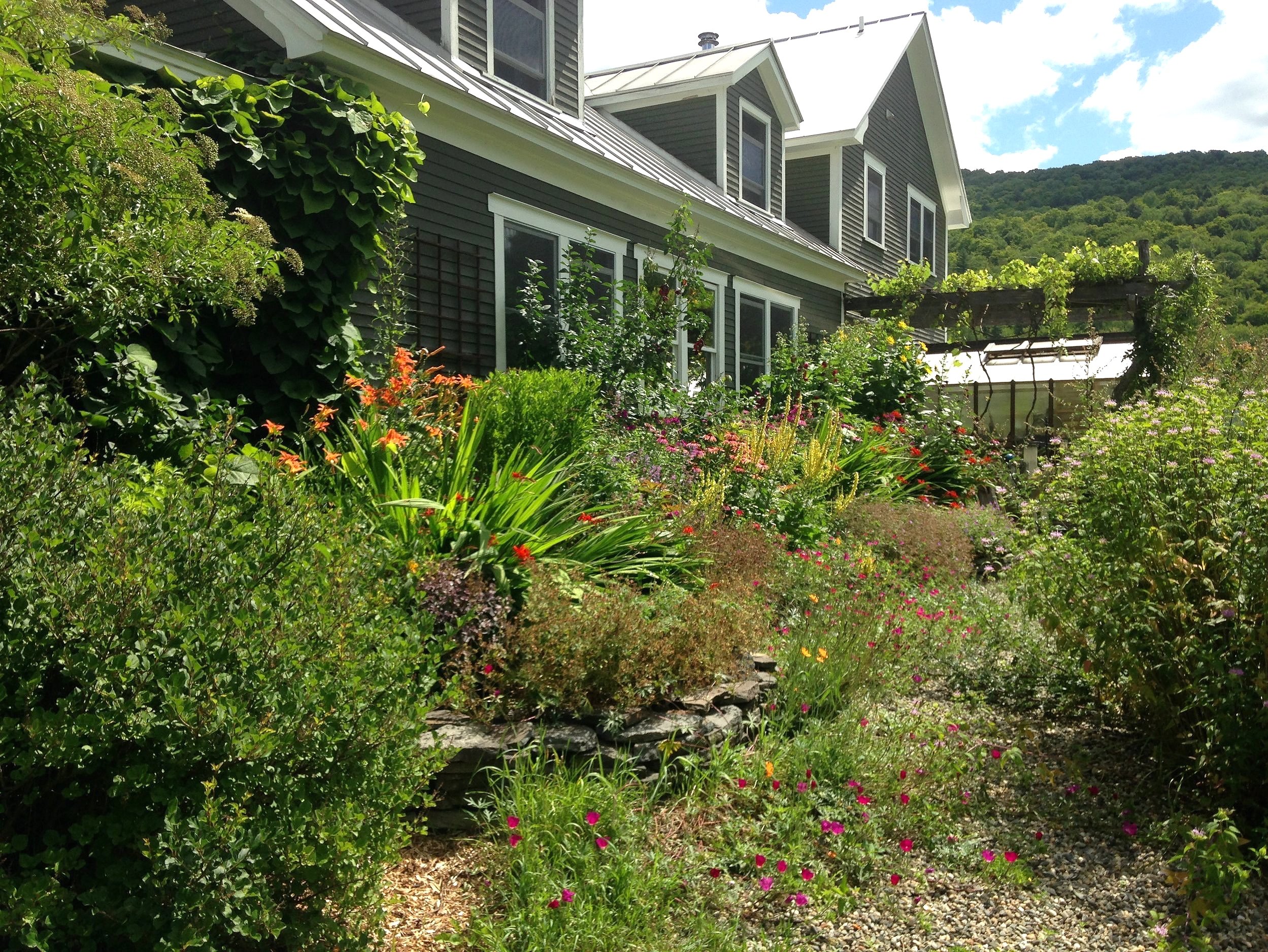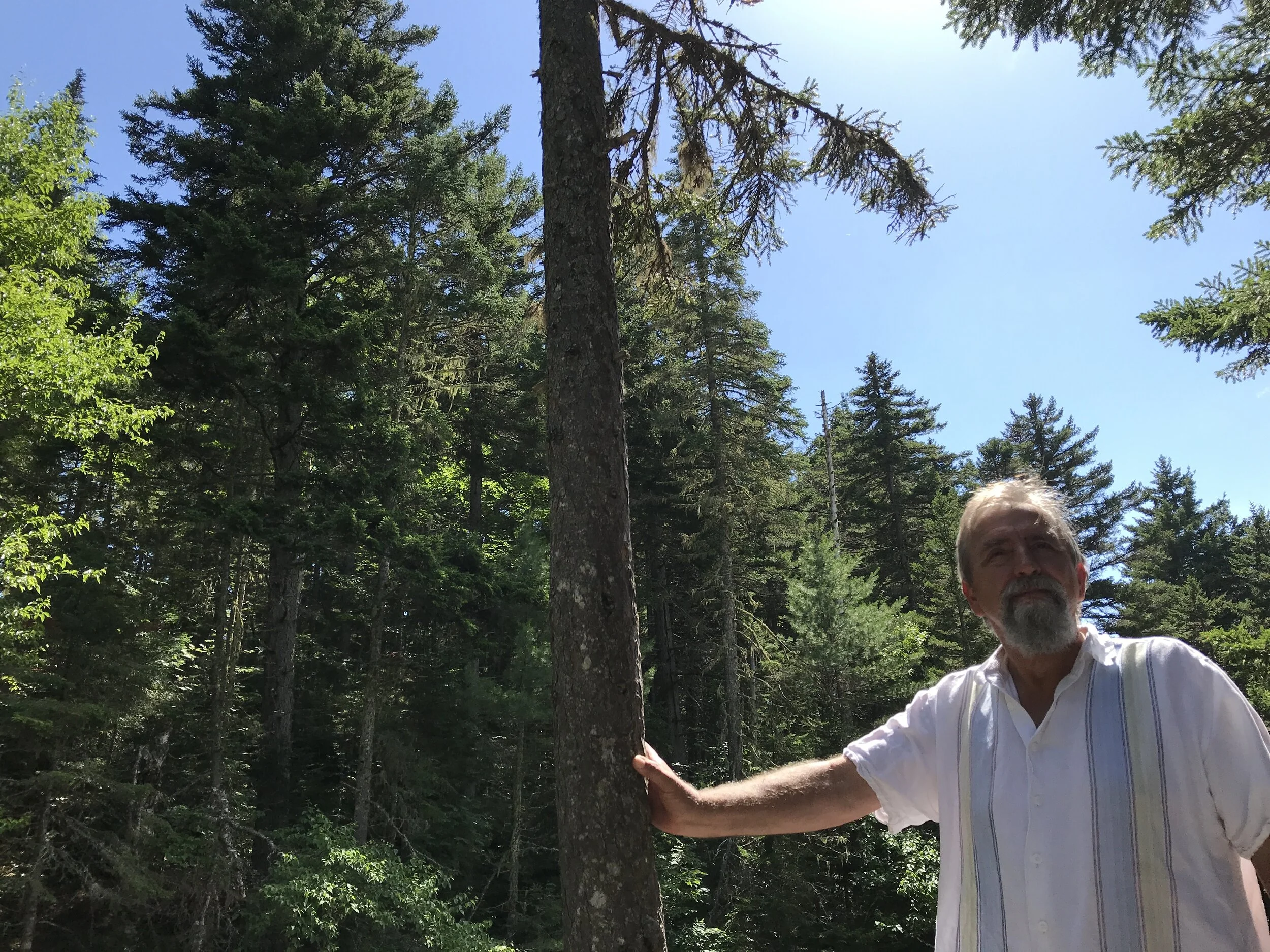Bee Haven Honey Farm was a 50 year beekeeping operation in rural Vermont, officially begun by Richard Drutchas in 1975, when he sold his first honey jars at the Farmer’s Market’s in Rutland, Vermont. By 2005, Bee Haven had been a 700 hive operation providing bulk and jarred honey to many of Vermont’s core coops and food specialty businesses, with apiaries on the Champlain Islands, at Shelburne Farms and on dairy farm land in Chittenden and Addison Counties for many years. Bee Haven experienced a devastating barn fire in Nov. of 2005, the same year the Bee Haven bees produced their largest honey crop, 60,000 pounds of honey, some of which was lost in the fire, along with a barn full of jarred honey cases, the honey extracting house and a big stash of beekeeping equipment. The years after the fire were a push to hold ground and rebuild, and in 2010, Bee Haven sold many of its apiaries to a younger, growing beekeeping operation, Northwood’s Apiaries, to down-shift and refocus. We became a much smaller-scaled operation focussed on making true raw, old world style honey, while we also incorporated more traditional, old world beekeeping products into our offerings ~ hive medicinals, garden grown natural body care products, infused vinegars and elixirs, beeswax candles and more. We sold our honey and other natural care products from our farm and at our local Farmer’s Market and we shipped our non-honey natural care products within the U.S.
Bee Haven Honey Farm is located on the east bank of the North Branch of the Winooski river, in Putnamville, Vermont, just south of Worcester village and about fifteen minutes north of Vermont’s wonderful wee little state capitol, Montpelier on the old Norton Dairy Farm. We followed the European Union's Regulations for Organic Beekeeping, though we don’t believe organic honey is really possible in the world anymore. We raised our own queen bees from our most gentle and productive hives and occasionally added genetics from other bees we admired. We made our own nucleus cells to repopulate the routine hive losses beekeepers experience in our new faltering world these days but we didn’t sell them. We used true organic practices in our gardens, though we were not officially certified and never sought to be. Ironically, ours and many others standards for organic far surpassed what regulations require for certification and we knew and trusted our own standards more than anything or anyone elses idea of it.
The bees of Bee Haven made amazing honey for 50 years. Enough to provide a source a beautiful honey to true honey fans around New England. We shipped honey buckets to many states and jars to other countries at various times of our beestory and in our last decades or so we hosted drive up honey sales at our farm when we were able to offer bulk quantities of honey for locals to swing through and pick up. The frosting on Bee Haven’s honey cake was taking the Grand Prize in the 2022 Black Jar International Honey Contest with our fall Goldenrod, Aster and Japanese Knotweed honey crop of that year. What a joy, privilege and wild ride. Long live the bees and long live the memory of a world where bees could survive and thrive.
Bee Haven was Rick’s life creation and effort. He was the fire of Bee Haven for all its 50 years. He hailed from Detroit, Michigan, where back in the day he was a roadie for the MC5, ran a small trucking business hauling bulk food products to early coops in the upper midwest and performed in the Wayne State Children’s Theater. Rick left Detroit not long after the riots to bike the west coast of the U.S. from the north to south, ending up in California for awhile, before signing up for a round with the merchant marines. He ended up in the Canadian Maritimes before making his way south to join up with Detroit friends in the Rutland, Vt. area in the early ‘70’s. It was in Vermont where he first learned to keep bees, from an old time neighbor grateful for help with his hives. By the time Rick moved to Montpelier he had his own hives in tow and he kept them on the roof of his apt. bldg. on Summer Street in Montpelier’s Meadow’s neighborhood, where taking a walk each spring to admire the flowering crabs is a ritual pleasure that announces the beginning of Vermont’s beautiful summer season. Rick went on to serve as the first full-time Vermont State Apiarist for almost a decade, where he inspected hives with his beloved dog Max, who was trained to sniff out foul brood in hives. Honeybees and tending them, roaming the natural world, wild-crafting in the woods and playing in the waters have always been Rick’s joy. He’s still out there playing in the wonders he loves.
Gen grew up in rural Minnesota before and during the times when Mn. family farms were overtaken by Big Ag. Her parent’s love of travel meant she and her siblings spent some of their childhood wearing dog tags in case they got lost in unusual locations. She lived mostly in Mn. through her college and graduate school years ~ Philosophy, Religious Studies and Adlerian Psychotherapy ~ where she also worked with children and adolescents impacted by trauma, sexual-violence and abuse in residential and wilderness treatment settings before heading to Vermont, where she worked as a traveling family therapist doing home-based work and opened a group psychotherapy practice, Green River Guild, in Hyde Park, Vermont, with a handful of other like-minded therapists for years in private practice. In 2005, she began to work a bit with Rick and the bees, eventually letting her psychotherapy practice and license go to join up full time with Rick and the bees full time. A lifelong lover of a good read, a long talk and chewing over complexities, she’s honored she got to play a part in Bee Haven’s story. She’s always shared the loves and practices of a good hygienic bee ~ tending and fussing over her hive, spending time in the plants and flowers, worshipping the magic of nature and witnessing to what our round of human kind has done to it all, while creating space for new energetic directions to come. What mysterious forces guide our lives and what magic unfolds when we lean into them.
Bees, their hives, and the honey they make, represent something special; not just for us, but for many humans, who seem to have always honored and revered them. The impact our dominant human culture has had on our planet has made it impossible for honeybees and other pollinators to thrive, and even survive, after they’ve played a central role in our earth’s eco-systems and their evolution for so long. Beekeepers have watched a change so dramatic over the last 50 years it’s impossible to not witness to the dramatic impact we’ve wrought on the natural world that hosts us here and that we obligated as its children to care for. Honeybees themselves have become an expected seasonal casualty in this world. As many or more hives die each year as survive. It’s now more lucrative for beekeepers to make bees to sell to replace the hives that routinely die each year than it is to make honey crops, which have become much smaller and much harder to achieve as more and more natural habitat is lost each year to development and all it brings with it. Bees have taken a direct hit from how we’ve changed our planet, along with so many other species and elements, and yet they’re still out there working as hard as they can, to fill their hive with nectar and make honey with it, so the bees that come after them will have food to eat to survive and be able to keep on keeping on. The idea that hives exist and create, literally at the crossroads of the sun and our earth’s elements, working endlessly to perform their amazing roles carrying on in all that we’ve throw at them is both tragic and inspirational.
We continue to dream of a world where humans have become more like honeybees ~ in love with our environment and living in deep care of it. Make it so!
Many people have helped Bee Haven over the years; from an older generation of beekeepers on the Champlain Islands who passed their apiaries onto Rick, to former partners, friends and helpers. Many special folks who contributed in large and small ways to keeping the ball rolling, from the day to day labor to the hard pushes of extracting seasons, for 50 years. A very special gratitude to all these folks. You know who you are and how hard it was and how meaningful.
The lands of Bee Haven and its hives are the unceded territory of the Western Abenaki ~ a group of Native American Algonquian-speaking peoples that was a part of Wabanahkik, (wah-bah-NAH-keek) "the land of the dawn", a larger territory that included areas of Quebec, the Canadian Maritimes, New Hampshire and upstate New York. The Abenaki people were a part of the Wabanaki Confederacy in the eighteenth century, involving Passamaquoddy, Malecite, and Micmac communities, as well. We recognize the original Native people’s sovereignty and superior stewardship of these lands, as well as the sovereignty of the land and waters themselves. We pray for, vote for and act for a future on earth when the sovereignty of the land is recognized by all its peoples, again, and is the driving force of all we do and don’t do.




